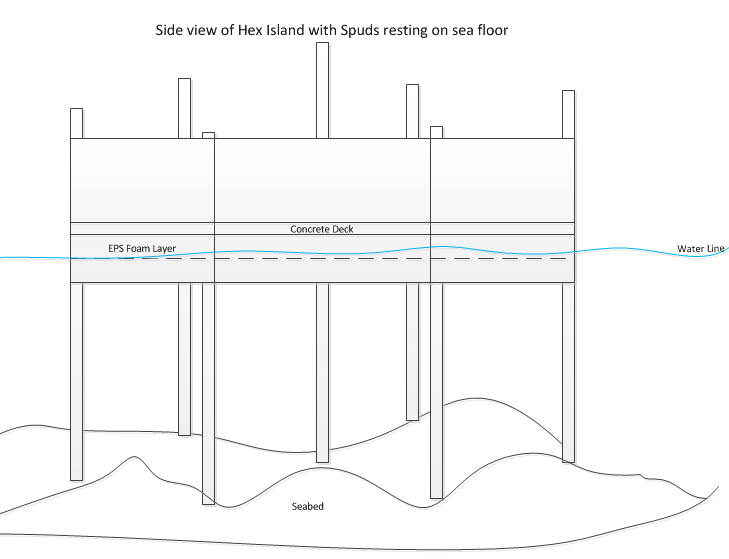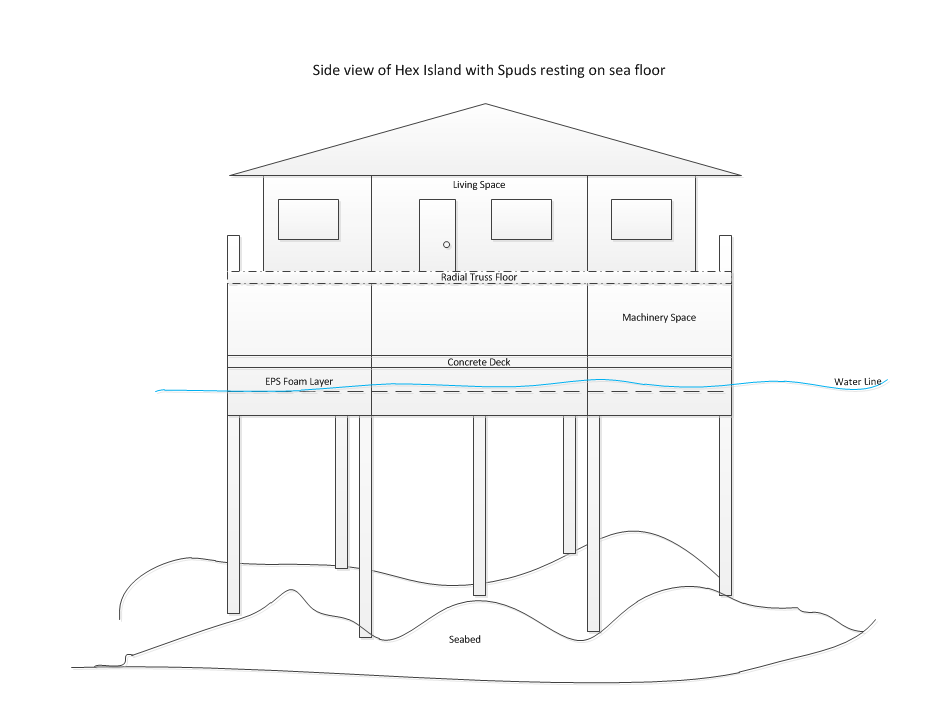Difference between revisions of "User:Thebastidge"
Thebastidge (talk | contribs) |
Thebastidge (talk | contribs) (→Diagrams and Architectural Sketches) |
||
| Line 46: | Line 46: | ||
==Diagrams and Architectural Sketches== | ==Diagrams and Architectural Sketches== | ||
| − | + | [[File:Side_View.png]][[File:Roofed Hex.png]] | |
| − | |||
==Videos of model tests== | ==Videos of model tests== | ||
None yet. | None yet. | ||
Revision as of 23:59, 24 July 2017
Larry is a network engineer working for a major US Electric Utility. He has been a TSI forum member from the inception.
Contents
Description
Detail
- Material issues - geopolymer concrete, foam inside base. Since it does not go far below the water foam and concrete should be ok. With foam cracks in the concrete will not be fatal. The wall could be somewhat like the one at this page.
- Fiber Reinforcement is basalt fiber and basalt rebar.
Requirements Analysis
- Safety
- It is very wide compared to boats and symmetrical in all directions and so should be very stable
- Base is filled with foam so essentially unsinkable
- No active ballast controls so no chance of that going wrong
- Comfort
- Broad spaces, no hull curvature to limit options
- Cost
- Depends on size. 24'/side (nearly 1500 sq ft per level x 2 levels for ~3000 sq ft total) estimate comes to ~$300,000 USD fully finished.
- Can emulate natural islands- bio-mimetic design
- Provides more psychological comfort than typical "built environment".
- Modular/Scalable
- Able to scale by adding hexagons until a "honeycomb archipelago" is achieved. Can make multiple lagoons.
- Free Floating
- Option to use gravity base mooring on "spud" legs.
- Standards
- Mobile
- Semi-mobile. Can be towed into place across significant distance, but once connected into honeycomb archipelago, movement becomes less practical.
- Draft
- Shallow draft compred to cargo vessels- ~9ft/3m
Diagrams and Architectural Sketches
Videos of model tests
None yet.

